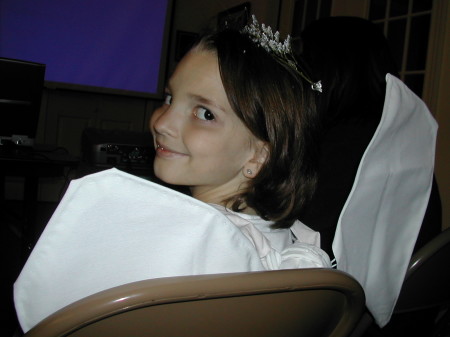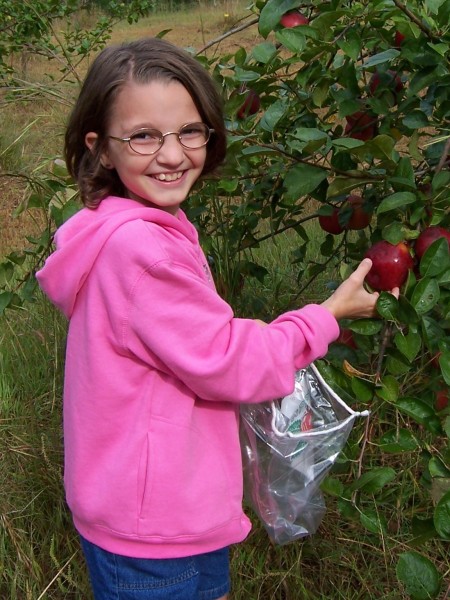In each adoption journey I think there are turning point moments. Moments where your ideas about adoption change or you feel the pull in a particular direction. There were a couple of those pivotal moments during the years we were researching and waiting, but one of them has been occupying a lot of my thoughts recently. Her name was Arissa. And November marked the tenth anniversary of her death.
Arissa’s story belongs to her and her family. There are many details I can’t share and even more that I don’t know. I do know that she showed up at the children’s home where we worked with a lot of quirks. She had been wounded in many ways, but that child had enthusiasm and emotions and questions and love like you wouldn’t believe.
We were in our second year houseparenting in a boys’ home, but Arissa would seek us out during those times when the boys and girls were together. She wanted to sit at our table during lunches. She wanted to be close to us during group devotions. The view of Arissa I remember best is during those devotional times. Brian and I led music for the kids. Because of how the sound system was arranged, we were behind the kids and they faced the front to see the words on the screen. While every other head was facing forward, Arissa would stand up on her chair (because she was too short to see) and would turn around and watch us. I spent many mornings just singing right to her as she smiled and waved at me. She was just that kind of kid— when the world was heading in one direction, Arissa would look the other way, always searching for smiles and relationship.
Arissa was not a child with any sort of boundaries when it came to the questions she’d ask. She asked questions about why we didn’t have kids and I did my best to frame answers about infertility in a way she could understand. She asked a lot of follow-up questions and then one day at lunch she just said, “You could adopt me.” It wasn’t a statement as much as it was a question. I was really taken aback. I reminded her that she had a family and they would probably be pretty sad if she wasn’t part of their family anymore. I told her that adoption was kind of complicated. I told her that I loved her and we wished she could be part of our family, too.
A couple weeks later she went on Thanksgiving break with her family. I remember during that break Brian and I did some painting on the house and it gave me a lot of mindless hours to think. And the thought kept nagging at me— maybe we COULD adopt Arissa. We loved her and she loved us. She had a lot of issues, but we could help her. We could see the progress that was already being made in her heart. Could we talk to her family about it? Maybe they would be open to some kind of guardianship arrangement? My mind was racing ahead and imagining a future that would never happen. The next day we found out she had been killed in a car accident.
There was so much grief for all the adults and kids who knew her. Our experience with her wasn’t unique— she charmed everybody with her absolutely sincerity and honesty (and frustrated everybody with her tantrums and stubbornness). Her loss left a great hole in our hearts, but we also knew she was finally complete and at rest with her Savior who loved her and would heal all her hurts. We were sad for our loss, but so happy for her.
Her life and her death changed people. For us, it meant a change in our attitude about adoption. There was a lot that was intimidating to me about adoption. My (subconscious) goal was to find a way to get my biological child to come out of someone else’s body. I wanted a healthy newborn and anything else seemed like a huge risk. Arissa changed all that. Realizing how much she didn’t fit my criteria, but how much I loved her and how precious she was to me helped me get past my ideas of what was ideal. I could imagine committing to a child that was older, that had medical issues, that came with a past. And I now understood more fully how desperately those kids were searching for someone to love them unconditionally and to commit to them for life.
We worked with many boys during our years houseparenting. Many of them we would have gladly adopted if their families had wanted that, but adoption wasn’t the goal. They had families they loved and what they most wanted was for their families to get healthy, so that’s what we wanted for them, too. But Arissa showed us that there are those kids who need something else and our hearts still break for the ones who know what they’re missing.
When I hear about the statistics of older kids waiting to be adopted, I see her face. The face of the child who on paper seems intimidating. Kids who have issues and labels. Kids who may miss their chance at a forever family because of the words that follow them around. Words that should imply they are the neediest and most victimized in our society, those most in need of help. Instead, we see those words as implying there was something inherently wrong with this child that brought that on her. What kind of problems will that child bring into our home and family? Why would we want to take on that kind of risk and try to love a damaged child?
I will never tell someone that love is enough to conquer those problems. I would never imply that those things can be easily overcome. You need to be aware of the issues and have a plan for how to help a child. You need to know your family’s strengths and resources before committing to a child who comes with some unique needs. I can talk you through how to prepare for caring for that child. But I can’t prepare you for how intensely and passionately you may love that child.
Sometimes there is a connection with a child that is beyond what we can express. It doesn’t make sense. It happens in spite of the issues and problems that follow them. Many of the kids we have most passionately cared for over the years have been the ones that on paper would have been the hardest to love. They weren’t always the youngest, the smartest, the easiest to get along with. There’s a certain chemistry that can’t be explained in a paragraph about a child’s history or in detailed files from their psychologist. And it’s unique from child to child and parent to parent.
Arissa taught us to give love a chance. To not box ourselves in when it comes to who God might call us to care for. We don’t know what the future would have looked like for Arissa, but we know our future was different because of her.
For more information about adopting waiting children, check out Adopt US Kids.
For more information about foster parenting in Nebraska, please contact Christian Heritage.
And if you want to see the face of somebody who needs a family, this child came from the same orphanage as my son and is now waiting in foster care. My heart breaks for him and I would be thrilled if we can help find him a family.



2 Comments
Leave a reply →